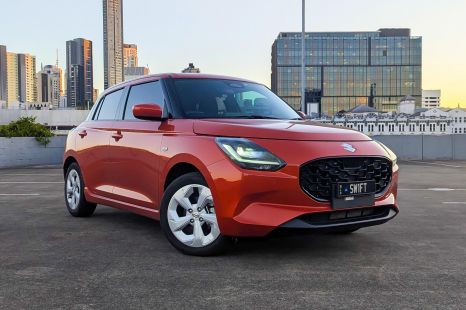

William Stopford
2025 Suzuki Swift Plus review
4 Days Ago

Journalist
There’s now a Ford Puma ST variant for buyers who cannot or don’t want to shift their own gears.
Unveiled overnight in Europe, the new Ford Puma ST Powershift pairs a 1.0-litre turbo with a seven-speed dual-clutch automatic gearbox.
It complements the existing Puma ST, not sold here, which has a 1.5-litre turbo and comes exclusively with a six-speed manual.
“The Puma ST is a fantastic vehicle, but we no news to share about an Australian introduction,” said a spokesperson for Ford Australia.
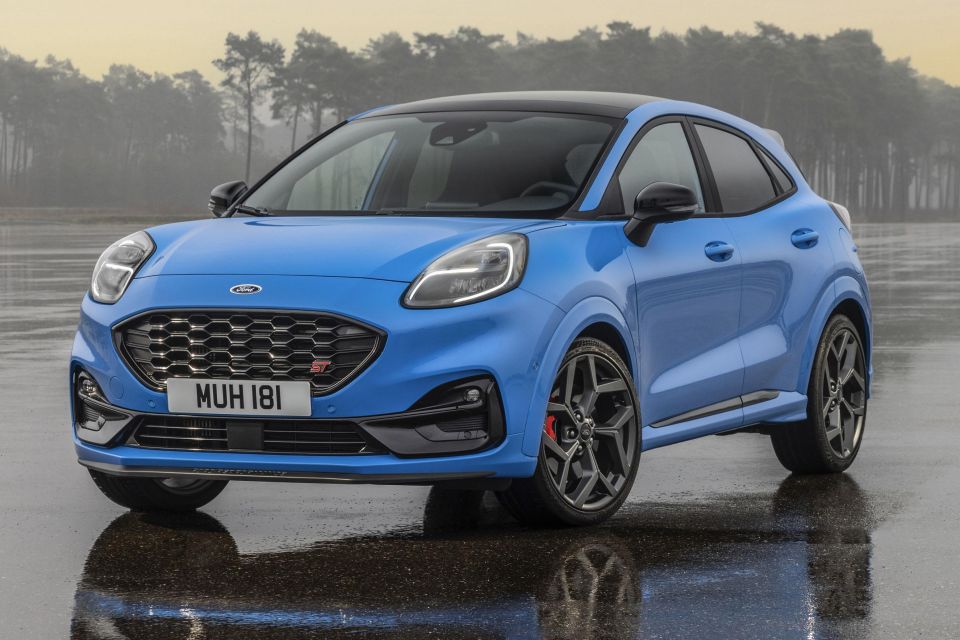
Under the bonnet of the ST Powershift is a 48V mild-hybrid version of the 1.0-litre three-cylinder turbocharged ‘Ecoboost’ engine used in other Ford vehicles.
Rated at 125kW at 5750rpm and 248Nm at 3000rpm, it is significantly lustier than the 92kW/170Nm variant of the engine found in Australian-bound Pumas.
That said, it has less power and torque than the manual Puma ST, which has a 1.5-litre three-cylinder turbo making 147kW at 6000rpm, and 320Nm between 2500 and 3500rpm.
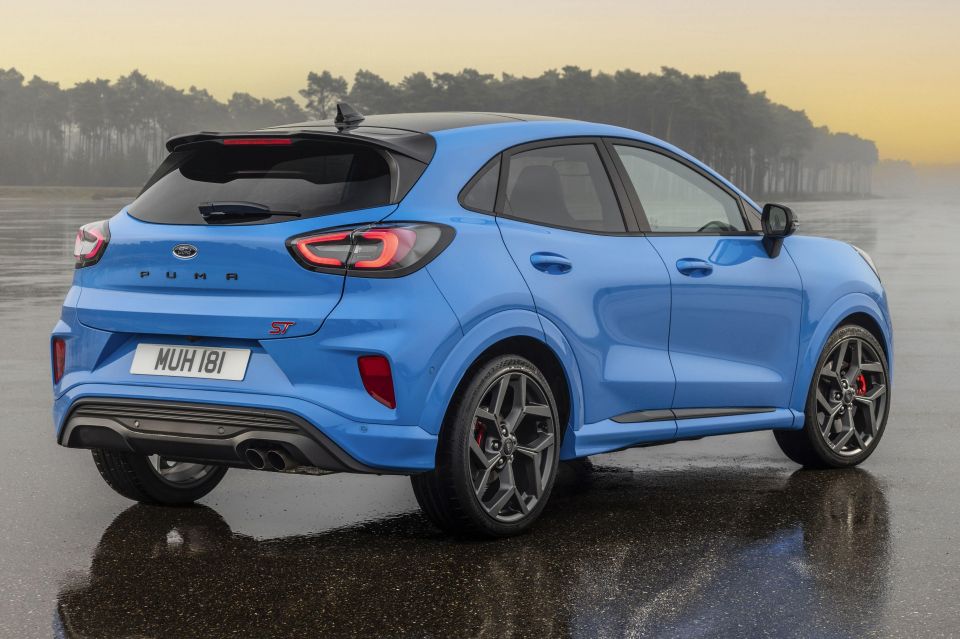
Fitted with a seven-speed dual-clutch automatic transmission driving the front wheels, the Puma ST Powershift is said to be capable of completing the 0-100km/h dash in 7.4 seconds.
For red-light racers, the new ST Powershift is 0.7 seconds slower to the century compared to the ST manual. The top speed is also lower at 210km/h, compared to 220km/h in the six-speed manual.
Driven more sedately, the Puma ST Powershift is said to consume 6.3L/100km according to the WLTP standard. That’s better than the 6.6 to 6.8L/100km figure quoted for the ST manual. Fuel stops should be around the same frequency, though, as the ST Powershift has a slightly smaller (42L) petrol tank compared to the ST manual (45L).
Thanks to the dual-clutch transmission and mild-hybrid system, the 1.0-litre ST Powershift (1394kg) is 36kg heavier than the manual ST.
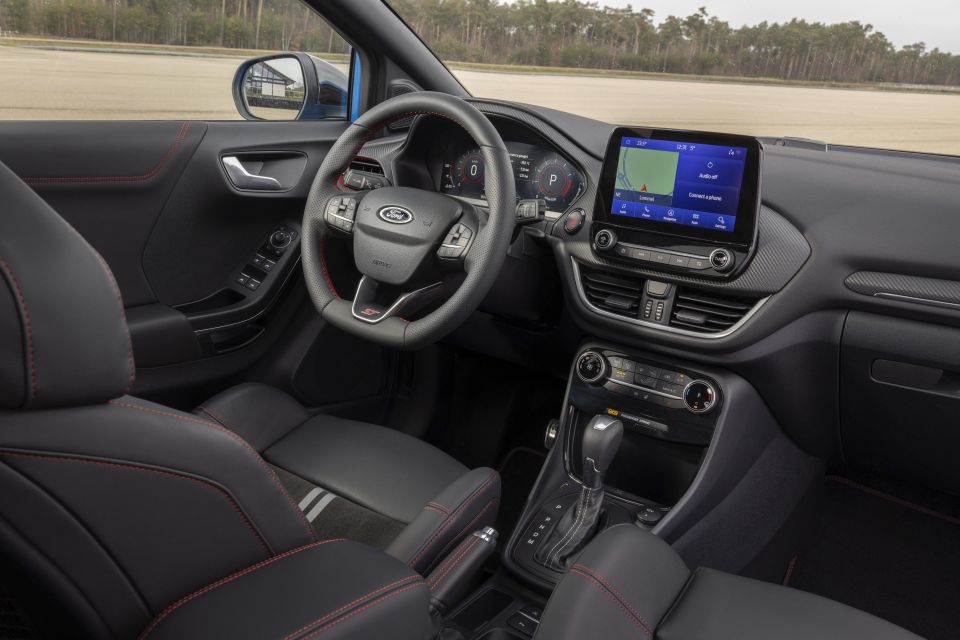
Like the manual ST, the ST Powershift has an active exhaust valve to improve performance and the engine’s aural characteristics.
Other features carried over from the manual ST include force vectoring springs, Hitachi twin-tube frequency-reactive dampers, a 25 per cent quicker steering rack, torque vectoring, 19-inch alloy wheels, and anti-roll bars at both ends — 24mm at the front, and 28mm at the rear.
There are also ST-specific bumpers with optimised grilles, and a rear diffuser. The grille, wing mirror caps, and large rear wing are finished in gloss black.
Six paint colours are available, which now includes a new Azura Blue hue that’s exclusive to ST models.
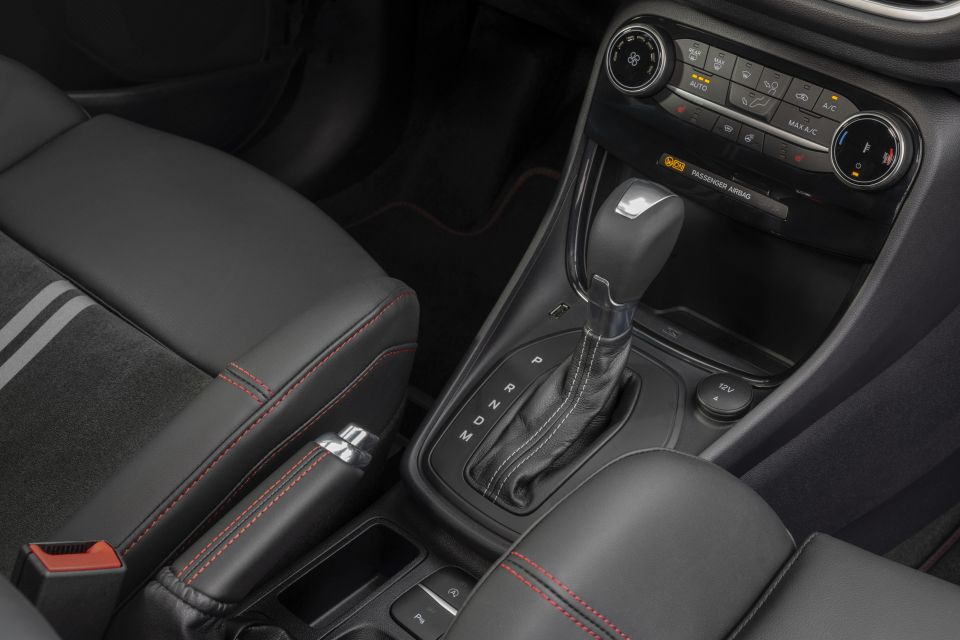
Available features include an 8.0-inch touchscreen running the Sync 3 infotainment system that supports Apple CarPlay and Android Auto, a 12.0-inch instrumentation display, paddle shifters, heated windscreen, Sensico faux leather upholstery, wireless smartphone charging, openable panoramic glass roof, hands-free tailgate, and a Bang & Olufsen sound system.
On the safety front the ST Powershift can be had with autonomous emergency braking with cross-traffic detection, adaptive cruise control, lane keeping alert, blind-spot monitoring, and traffic sign recognition.
At present, the local Puma range is available in three trims (standard, ST-Line, and ST-Line V), all with front-wheel drive and a 92kW/170Nm 1.0-litre turbo.
Should Ford Australia choose to bring the Puma ST to Australia, it could help fill the void by the recently axed Fiesta ST and Focus ST.
MORE: Everything Ford Puma
Where expert car reviews meet expert car buying – CarExpert gives you trusted advice, personalised service and real savings on your next new car.
Derek Fung would love to tell you about his multiple degrees, but he's too busy writing up some news right now. In his spare time Derek loves chasing automotive rabbits down the hole. Based in New York, New York, Derek loves to travel and is very much a window not an aisle person.


William Stopford
4 Days Ago
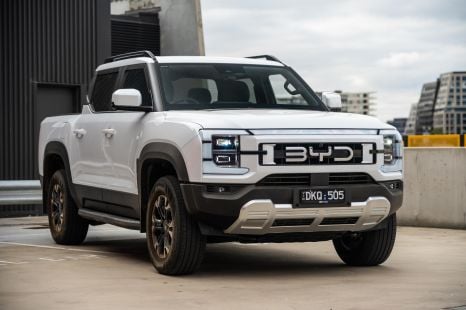

Max Davies
3 Days Ago
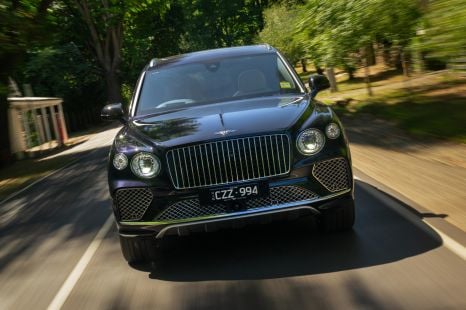

Josh Nevett
2 Days Ago
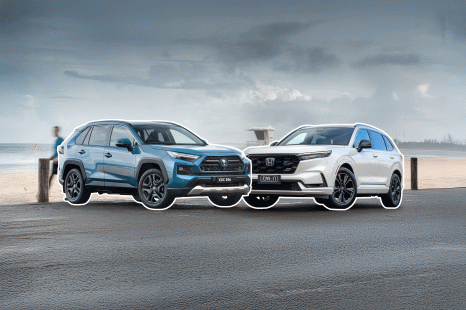

Andrew Maclean
2 Days Ago
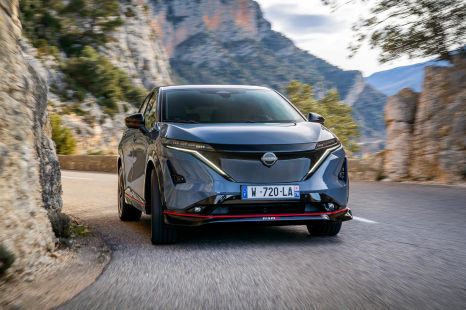

Shane O'Donoghue
1 Day Ago


CarExpert.com.au
17 Hours Ago